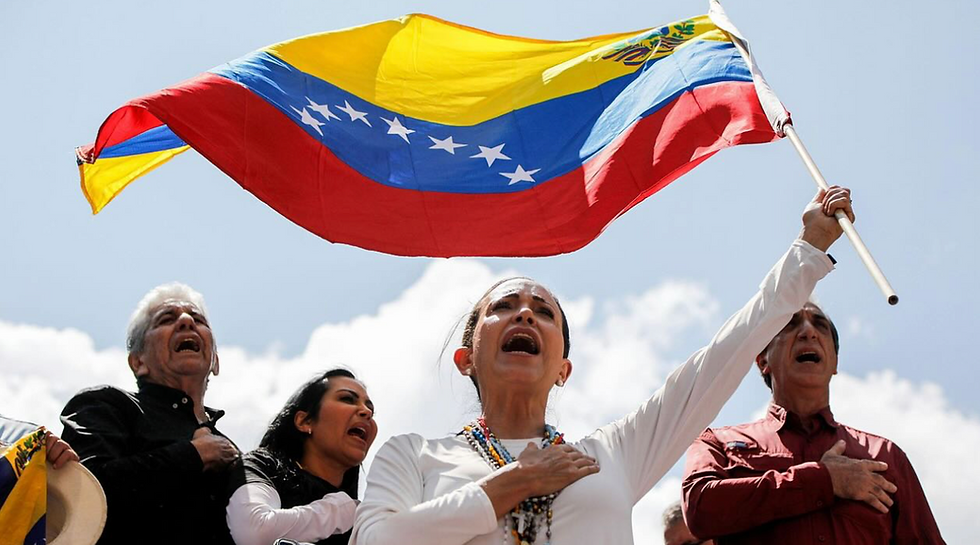The role of the Prisoner’s Dilemma in 21st century conflicts - Eva S.
- May 9, 2023
- 3 min read
The prisoner’s dilemma is arguably one of the most vital of game theories, illustrating a conflict between individual rationality and collective rationality. Developed in 1950 by mathematicians Merrill Flood and Melvin Dresher, and later explored by Albert William Tucker, this notion gave way to multiple political and philosophical discussions of the 21st century. One of the reasons for its frequent appearance is how easily applicable it is to current disputes and tensions, whereby nations seem to continuously act in their self-interests resulting in a suboptimal or worse outcome, which impacts both participants. This theory portrays the importance of trust, communication, and cooperation in achieving mutually beneficial results, and tragically our continuous inability to achieve that communication and cooperation.
For those who are unfamiliar with the prisoners’ dilemma, the most common explanation goes as follows. The prosecutor offers each suspect a deal: if one suspect confesses and testifies against the other, he will go free while the other suspect will receive a harsher sentence. If neither suspect confesses, they will both receive a moderate sentence. If both suspects confess, they will both receive a harsh sentence. The conundrum arises because each suspect has an incentive to confess, regardless of what the other suspect does. The clear paradox here is that while it would be ideal for both suspects to remain silent and receive a moderate sentence, their pursuit of personal interest leads them to confess and hence receive a harsh sentence, placing them both in a worse off position.
One can blame this flawed result widely on human nature. Our deep rooted sense of paranoia and inherent distrust towards our enemies, and commonly our allies too, has left us in an extremely vulnerable position in terms of finding a solution to this problem. It is this underlying fear of never truly knowing another one’s intentions that fuels our desire to always manoeuvre ourselves in a way which we consider the ‘most beneficial’ or perhaps the ‘safest’. This pattern can be clearly witnessed when examining interactions between nations, with the most notable example being that of the Cold War.
Two developed, competent nations found it astonishingly difficult to anticipate or understand each other’s reactions to the contested issues of the time. This consequently led to one of the largest arms races in history, along with a multitude of proxy wars which one can argue continue to this very day. The most memorable and dangerous demonstration of this was the emergence of the Cuban Missile Crisis which put the military doctrine of Mutually Assured Destruction to the test. After 13 days of tension, with the whole globe at potential risk of nuclear annihilation, an agreement was reached. The Soviet Union removed the missile in exchange for the US’s removal of the naval blockade on Cuba as well as a public declaration that they would not invade the nation. In this case the “prisoner’s dilemma” is evident: each side can cooperate to avoid utterly obliterating each other, or they can defect and shoot first, assuring total destruction of their countries and the majority of the world. Fortunately for us all, the latter was avoided due to the presence of MAD and the game theory behind it; however, this is not to say that the arms race ever came to a halt. Neither nation had an incentive to reduce their nuclear arsenal whilst the other expanded theirs. This highlights the basic principle that the intentions of states towards each other are dormant and hence the ability to make a sane and reasonable decision becomes to many countries an impossible task, and thus a huge sacrifice to the greater good.
With numerous conflicts emerging and escalating over these past decades, from the Sino-American dynamic to the Aaudi-Iranian conflict, it begs the question - is there really any solution to the dilemma? Surely to fully solve the outcome, one would have to alter the psychology of the human race, programming our minds into a state of trust and social cohesion that an idealist could only dream of. Or maybe it is a matter of glueing ideological and religious schisms, in order to achieve a society that is not hungry for territorial expansions and power domination? However, there is also room for a less extreme, but conveniently vague resolution. We could potentially discourage climbing the ladder of individual rationale by introducing incentives for participants to make optimal outcomes look beneficial for each, whilst motivating them to cooperate and interact. There is clearly much room for speculation and utopianism, but is there truly a tangible solution to the prisoner's dilemma? I leave that thought to the readers and the leaders of the world.
Eva S.
Year 12
Image source: https://en.wikipedia.org/wiki/Prisoner%27s_dilemma#/media/File:Prisoner's_Dilemma_briefcase_exchange_(colorized).svg





Comments